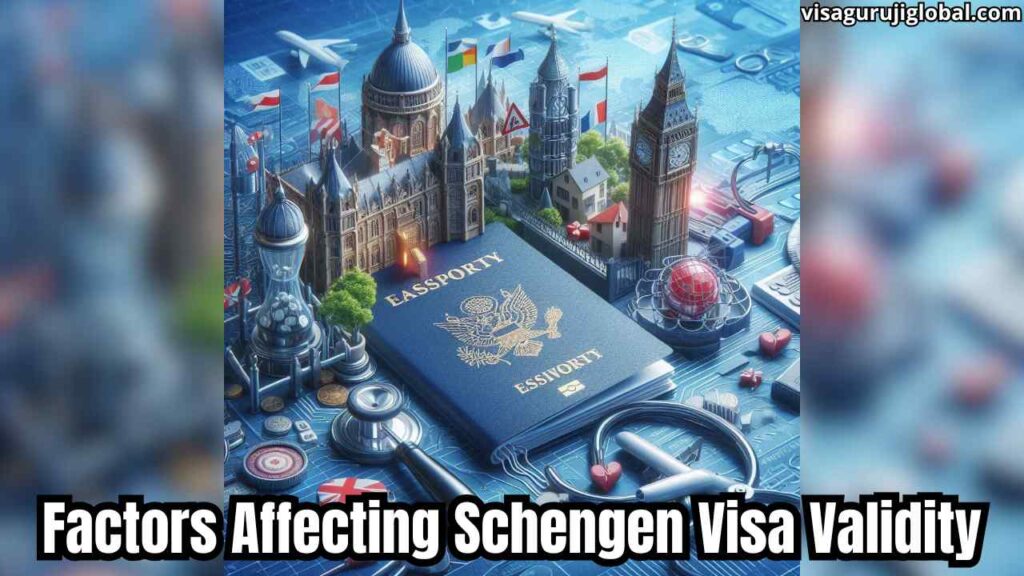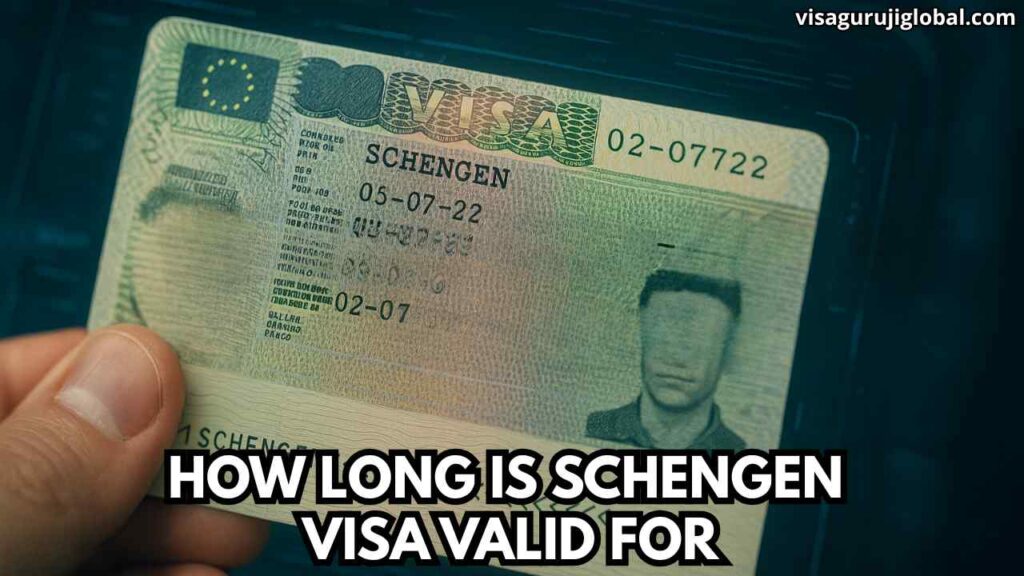Introduction
When planning a trip to Europe, one of the most important questions to answer is: How long is Schengen visa valid for? Whether you’re visiting the beautiful streets of Paris, the historic landmarks of Rome, or the charming canals of Amsterdam, having clarity on the validity of your Schengen visa is essential. A Schengen visa allows you to travel freely across 27 European countries, but the rules governing how long you can stay in the region can vary depending on the type of visa you have.
In this guide, we’ll cover everything you need to know about the Schengen visa validity, including its different types, the duration of stay, and tips to avoid overstaying. Understanding the details will help you plan your trip and ensure your travels through Europe are smooth and stress-free.

Understanding the Schengen Area and Its Visa
The Schengen Area consists of 27 European countries that have abolished border controls between them. This means that once you enter a country within the Schengen Area with a valid visa, you can travel to other member states without having to go through passport checks or additional visa procedures. The most common type of visa issued for such travel is the Schengen visa, which grants non-EU nationals the right to enter, stay, or transit within the Schengen Area.
However, many travelers are often unclear about the specifics of how long their Schengen visa is valid for. The duration of your stay depends on several factors, including the type of visa issued, the purpose of your trip, and the country that issues the visa.
How Long is Schengen Visa Valid For?
A typical Schengen short-stay visa (type C) is generally valid for up to 90 days within a 180-day period. This means that you can stay in the Schengen Area for up to 90 days within any 180-day timeframe. However, it’s important to note that the 90 days do not necessarily need to be consecutive. You can divide them across multiple visits to the Schengen Area during the validity period of your visa.
For example, you might spend 30 days in France, return home for a while, and then visit Germany for another 60 days during the same 180-day period. Your total stay in Schengen countries would not exceed 90 days.
However, for longer stays, different types of Schengen visas exist. These may allow for extended stays, like national visas (type D), which permit stays for more than 90 days and are usually issued by individual Schengen countries based on their immigration policies.

Factors Affecting Schengen Visa Validity
Several factors can influence how long your Schengen visa will be valid for. Understanding these factors is crucial for proper planning of your trip.
1. Visa Type
As mentioned earlier, there are different types of Schengen visas. The most common one is the short-stay visa, which typically allows you to stay for up to 90 days in any 180-day period. However, if you need to stay longer than 90 days, a long-stay visa or national visa may be required. These visas are issued by individual countries within the Schengen Area and may allow stays from 91 days to a year or more, depending on the country’s immigration rules.
2. The Purpose of Your Visit
Your reason for visiting will play a significant role in determining how long your visa will be valid for. For example, if you’re visiting for tourism, a short-stay Schengen visa might be enough. However, if you are traveling for work, business, or study, a longer-term visa might be necessary. The type of visa you apply for will directly impact the duration of your stay, so make sure to apply for the right one.
3. Country of Application
The country you apply to for a Schengen visa also affects your visa’s validity. The main destination rule states that you must apply for your visa through the country that is either your primary destination or the one you will be spending the most time in during your stay in the Schengen Area. If you are traveling to multiple countries, the visa validity will depend on your itinerary.
4. Previous Visa History
Your history with the Schengen visa can also affect your future visa durations. If you have a strong track record of adhering to visa rules in the past (i.e., not overstaying or violating visa conditions), there’s a good chance you’ll receive a visa with more flexibility in terms of duration. Conversely, if you’ve overstayed in the past, future visas may be granted for shorter durations.
5. Season and Demand
Sometimes, the length of time you’re granted a visa can also depend on the season or demand for visas. During busy tourist seasons, such as summer, consulates may issue shorter visas to manage the demand. Conversely, during the off-season, you may be granted longer stays.
How to Calculate Your Schengen Visa Validity
When it comes to managing your Schengen visa validity, knowing how to calculate the 90 days within 180 days rule is key. Let’s break down how to calculate it effectively:
90/180 Rule Calculation
For each Schengen visa holder, the rule is simple but can be tricky to track manually. You are allowed to stay in the Schengen Area for 90 days within any 180-day period. To calculate your eligibility, follow these steps:
- Determine your last 180 days from the date you plan to enter the Schengen Area. For example, if you arrive on January 1st, your 180-day period will be from July 1st to December 31st of the previous year.
- Track your days of stay: From January 1st, count your days spent in the Schengen Area within the last 180 days. Ensure you don’t exceed 90 days.
It’s important to plan your trips carefully and keep track of your days. Some apps and online tools can assist in calculating the Schengen visa validity, and many consulates offer guidance on how to track your stay.

What Happens If You Overstay Your Schengen Visa?
Overstaying your Schengen visa can result in serious consequences, including fines, deportation, or even a ban from entering the Schengen Area for a period of time. To avoid overstaying:
- Keep track of your stay: Ensure you’re aware of how many days you’ve spent in the Schengen Area. Use a calendar or an app that tracks your visa days.
- Plan extensions: If you wish to extend your stay, make sure to apply for an extension before your 90 days expire. Extensions can be granted under specific circumstances, but they are not always guaranteed.
- Apply for the correct visa: If you know your trip will exceed 90 days, apply for a long-term visa (type D) or a national visa before your short-term Schengen visa expires.
Also Read: Egypt Visa For UAE Residents
Conclusion
A Schengen visa allows you to stay within the 27 European countries for up to 90 days within any 180-day period for tourism, business, or short-term visits. The exact length of your visa’s validity will depend on various factors like the visa type, the purpose of your visit, and the country issuing the visa.
Whether you are planning a quick getaway to Europe or a longer business trip, understanding the Schengen visa validity rules can save you time, money, and potential headaches. Make sure to apply for the correct visa, calculate your days carefully, and plan your travels within the allowed duration to ensure a hassle-free experience.

